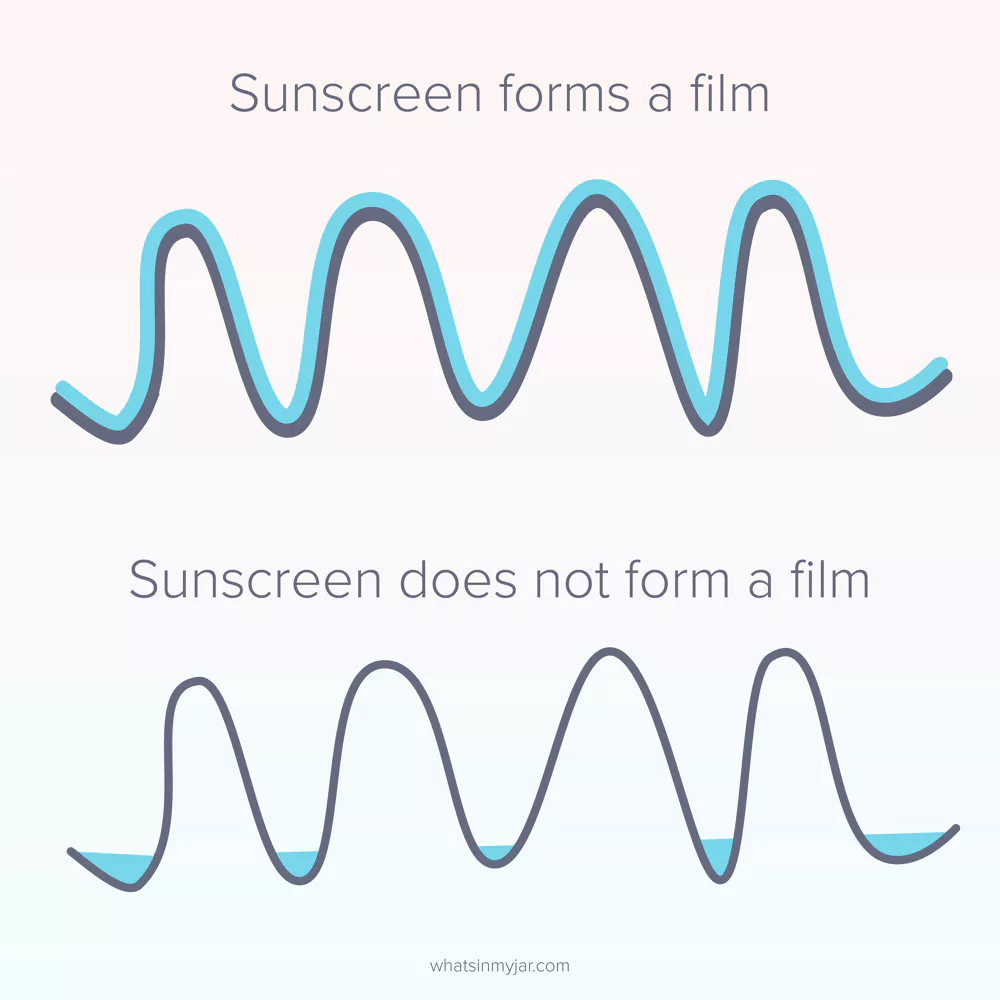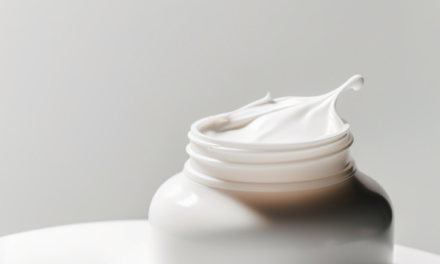The Dark Side of Lightweight Sunscreens
Everyone’s loving light sunscreens these days. People who use sunscreen every day are all about sunscreens that work well, go on smooth, and you can’t even tell they’re there. Now, there’s a bunch of brands selling these “ultra light” versions, and everyone who’s into skincare is trying to find the lightest one out there. But here’s the thing, though: these lighter sunscreens might not protect you from the sun as much as you think they would.

You need an even layer
To provide effective protection, sunscreen needs to create an even layer on the surface of your skin. This is crucial because our skin isn’t flat – it has its own landscape of hills and valleys. A thin layer of sunscreen over this uneven surface could result in patchy coverage. The sunscreen might fill or cover the “valleys” of your skin but may not adequately cover the “peaks”, similar to painting a rough wall with a small amount of paint on your brush.
The trap of thin application
With a lighter texture, it’s easier – and often more tempting – to apply a thinner layer of sunscreen. It’s crucial to remember, though, that SPF testing uses a specific amount of sunscreen: 2 mg for each square centimeter of skin. To visualize how much that is for an average face, imagine an amount of sunscreen slightly larger than a US quarter coin. This is a substantial amount to spread over your face – you may even need two layers if the product is especially thin. If you apply less than this, you won’t get the protection level stated on the product label.

Risks of under-application
In fact, if a product is marketed with an SPF 50 rating but is applied in an amount less than 2 mg per square cm, it may not even reach the minimum SPF rating of 15. This is due to the failure to adequately cover those “skin hills”.
If you don’t feel any sunscreen residue after applying it, this might signal that you haven’t applied enough, and a proper protective film hasn’t been formed. As a result, most of your skin may not be protected. This can be particularly risky because you might believe you’re safe to spend time in the sun just because you’ve applied some sunscreen.
Bottom line
The key takeaway? Don’t let the allure of lightweight sunscreens compromise your skin’s protection. Apply enough, and apply it evenly. Consider to going for a thicker texture when going to a beach or if you plan to spend the whole day outdoors in sunlight.
Choose your products based on actives
WIMJ Search allows you to select skincare products based on what’s inside. Filter products by actives included, and exclude ingredients you don’t want. Check the concentration of ingredients and potential irritants.
Sources
- Application of sunscreen − theory and reality https://onlinelibrary.wiley.com/doi/full/10.1111/phpp.12099
- Skin Surface Topography and Texture Analysis of Sun-Exposed Body Sites in View of Sunscreen Application https://karger.com/spp/article-abstract/29/6/291/295887/Skin-Surface-Topography-and-Texture-Analysis-of?redirectedFrom=fulltext
Related Articles
Winter Skin Care: Navigating the Chilly Season with Healthy Skin
Let’s dive into understanding winter skin and how to best care for it.
Opting for Fragrance-Free Skincare: A Skin-Friendly Choice
Opting for Fragrance-Free Skincare: A Skin-Friendly ChoiceIs the smell of your skincare products hurting your skin? It's a question we often don't think about. Yes, the scents can be nice, but they can also cause problems. About one in three skin issues from cosmetics...
What Does Sensitive Skin Mean and How to Help It?
Discover what sensitive skin truly means. We break down the causes, symptoms, and potential triggers of sensitive skin, and share simple steps to manage and reduce skin sensitivity effectively.
Do You Really Need Custom-Made Skincare?
Custom-made skincare products have become a talking point recently. But are they an essential innovation in skincare or simply a captivating marketing gimmick? This blog post delves into whether personalized skincare truly offers advanced scientific solutions tailored to our unique needs or is it luring us into paying more for seemingly “perfect” products.
Is Skincare A Scam?
Is Skincare a Scam? "Is skincare a scam?", you might wonder after spending $$$ on products that don't work. Or better put, "does the beauty industry turn skincare into a scam?". In many ways, yes - unfortunately. As consumers, we crave innovation, seeking skincare...
Do I Need Sunscreen for Indirect Sunlight?
How often have you heard that sunscreen is key for protecting our skin from the sun? A lot, right? But, does this same rule apply when you’re in indirect sunlight, in the shade or on a cloudy winter day? The answer is yes. Here’s the explanation.
The Ultimate Guide to Sunscreens And Sun Protection
“Understanding why sunscreen is important in skincare is essential for maintaining youthful, healthy skin. Scientists have found that a staggering 80% of externally-caused skin aging is a result of sun damage. The effects? A variety of skincare woes such as pigmentation problems, scarring, and enlarged pores as we age. So, whether you’re dealing with anti-aging, acne, or pigmentation concerns, sunscreen is an irreplaceable part of your skincare routine. And remember, it’s vital for all skin tones – yes, even the darkest ones.”
The Ultimate Guide to Skin Cleansing
Daily skin cleansing is an essential part of skincare, but do we truly understand why we cleanse our skin and how it works? How often should we wash our skin? Let’s dive deep into the world of skin cleansing and clarify the typically overlooked basics.
How to Choose A Good Moisturizer?
Choosing the right moisturizer for your skin can be a daunting task. The market is awash with countless products, each promising to hydrate, protect, and nourish your skin. So, how do you make an informed choice? Let’s break down the evidence behind effects of moisturizers, debunk marketing myths, and learn how to choose the best moisturizer for your skin.
How Many Steps Do You Really Need for A Good Skincare Routine?
What Steps Do You Really Need for A Good Skincare Routine?Taking care of your skin is more than just a beauty routine - it’s an important part of maintaining overall health. But skincare can be overwhelming, with so many products and steps to choose from. While there...




